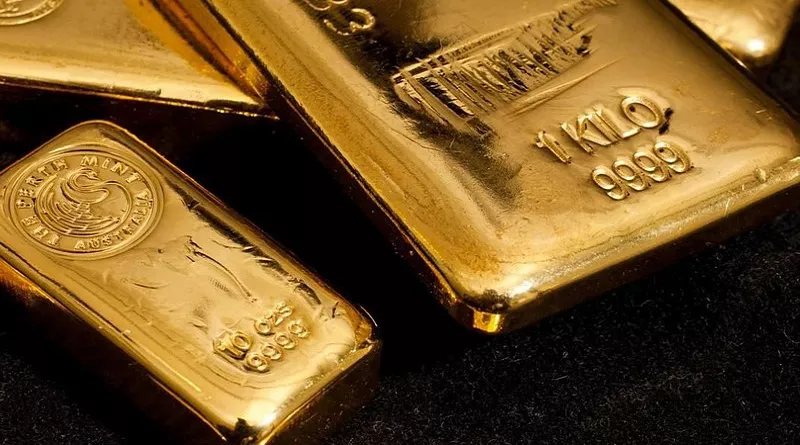Gold futures are a vital component of the global commodities market, offering investors and traders a means to speculate on the future price movements of gold without the need to physically own the metal. Futures contracts for gold are traded on several major exchanges worldwide, each playing a crucial role in setting prices, providing liquidity, and facilitating risk management for participants across the globe.
Understanding Gold Futures
Gold futures are standardized contracts that obligate the buyer to purchase and the seller to deliver a specified amount of gold (usually 100 troy ounces) at a predetermined price on a future delivery date. These contracts are traded on futures exchanges, which act as intermediaries, providing a platform for buyers and sellers to engage in transactions. Futures contracts allow market participants to hedge against price fluctuations or speculate on price movements, making them essential tools for investors, miners, jewelers, and other stakeholders in the gold industry.
Major Exchanges for Gold Futures Trading
1. COMEX (New York Mercantile Exchange)
The COMEX division of the New York Mercantile Exchange (NYMEX), operated by CME Group, is one of the largest and most influential exchanges for gold futures trading. Located in New York City, COMEX offers a central marketplace for trading precious metals futures, including gold, silver, platinum, and palladium. The exchange provides transparent pricing and liquidity, attracting a diverse range of participants from institutional investors to individual traders.
2. Tokyo Commodity Exchange (TOCOM)
In Asia, the Tokyo Commodity Exchange (TOCOM) serves as a prominent hub for gold futures trading. TOCOM provides futures contracts for both gold and silver, catering primarily to participants in the Asia-Pacific region. The exchange plays a crucial role in setting benchmark prices for gold in Asian markets and offers electronic trading platforms to enhance accessibility and efficiency for market participants.
3. Shanghai Futures Exchange (SHFE)
China, as the world’s largest consumer of gold, hosts the Shanghai Futures Exchange (SHFE), where gold futures contracts are actively traded. SHFE offers gold futures contracts denominated in yuan, providing domestic and international investors with exposure to the Chinese gold market. The exchange’s influence has grown significantly, reflecting China’s increasing role in the global gold trade and financial markets.
4. London Bullion Market Association (LBMA)
While not a futures exchange in the traditional sense, the London Bullion Market Association (LBMA) plays a crucial role in the over-the-counter (OTC) trading of gold and other precious metals. The LBMA sets benchmark prices for gold (the LBMA Gold Price) twice daily, which serves as a reference for OTC transactions, futures contracts, and other derivative instruments traded globally. Market participants use LBMA prices to settle contracts and manage price risk effectively.
5. Multi Commodity Exchange (MCX) India
In India, the Multi Commodity Exchange (MCX) offers futures contracts for gold, providing a platform for domestic investors, jewelers, and institutions to hedge against price risks and speculate on gold price movements. MCX facilitates electronic trading of gold futures, leveraging India’s significant demand for gold as both an investment and cultural asset.
Factors Influencing Gold Futures Trading
1. Market Demand and Supply Dynamics
The price of gold futures is influenced by global supply and demand dynamics, including geopolitical events, economic indicators, and investor sentiment. Changes in interest rates, inflation expectations, and currency movements also impact gold prices, influencing trading volumes and price volatility in futures markets.
2. Investor Sentiment and Speculative Trading
Gold futures attract both hedgers and speculators, with speculative trading contributing to short-term price movements. Investor sentiment, macroeconomic trends, and financial market conditions can drive speculative trading activity, affecting futures prices and market liquidity.
3. Regulatory and Exchange Policies
Regulatory policies and exchange regulations play a crucial role in governing gold futures trading, ensuring market integrity, transparency, and investor protection. Exchanges establish margin requirements, trading hours, and position limits to manage risk and maintain orderly market conditions.
4. Technological Advancements
Advancements in trading technology, such as electronic platforms and algorithmic trading systems, have transformed the landscape of gold futures trading. These technologies enhance trading efficiency, increase market transparency, and facilitate rapid order execution, attracting a diverse range of participants to futures markets.
The Role of Gold Futures in Risk Management and Investment Strategies
Gold futures serve as essential tools for risk management and investment strategies across various sectors:
Hedging: Producers, consumers, and investors use gold futures to hedge against price risks associated with production, consumption, and investment activities.
Speculation: Traders and investors engage in speculative trading to capitalize on short-term price movements or macroeconomic trends affecting gold prices.
Portfolio Diversification: Institutional investors and individuals incorporate gold futures into diversified investment portfolios to manage risk and enhance returns during market volatility.
See Also How to Buy a Gold Future
Conclusion
Gold futures trading occurs on several major exchanges worldwide, each contributing to global price discovery, liquidity, and risk management in the precious metals market. From established exchanges like COMEX and TOCOM to emerging markets facilitated by exchanges in Shanghai and Mumbai, the landscape of gold futures trading continues to evolve, driven by technological advancements, regulatory frameworks, and global economic trends. Understanding the dynamics of gold futures trading is essential for investors, traders, and stakeholders navigating the complexities of the global commodities market.


